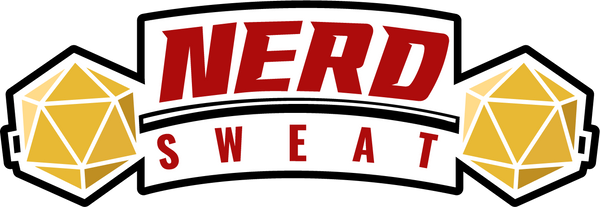
How Tabletop RPGs Foster Leadership and Teamwork in Group Settings
When you sit down at a Dungeons & Dragons table, you’re not just rolling dice—you’re engaging in one of the most effective (and entertaining) team-building exercises ever designed. Whether you’re leading a charge against a dragon, negotiating with a cunning warlord, or strategizing an escape from a collapsing dungeon, every session is a crash course in leadership and teamwork.
But what makes tabletop RPGs (TTRPGs) such a powerful tool for developing these skills? And how can they be applied beyond the game? Grab your character sheet and let’s explore!
1. Leadership Styles at the Table
RPGs organically encourage different styles of leadership. Some players naturally take on tactical leadership, directing combat strategy and resource management, while others embrace diplomatic leadership, ensuring party cohesion and mediating conflicts—both in and out of the game.
Example:
A paladin might command the battlefield with decisive orders, ensuring everyone knows their role. Meanwhile, a bard might use persuasion and charisma to rally the party after a loss. Both are leading in different but equally valuable ways.
Real-World Parallel:
A corporate manager may need to delegate tasks and set clear goals like a paladin, while a team leader in a creative field might need the soft skills of a bard to keep morale high.
Resource: Check out the book The Leadership Challenge by James Kouzes & Barry Posner for real-world leadership strategies that align with RPG-style problem-solving.
2. The Party That Plays Together, Stays Together
A D&D party is only as strong as its weakest link, which means teamwork is everything. Unlike competitive games, RPGs reward collaborative problem-solving, where working together creates the best outcomes.
Example:
A rogue spots a pressure plate trap but lacks the strength to disable it. The fighter, strong but not particularly perceptive, wouldn’t have noticed it. Alone, they’d both be doomed. But together? They avoid disaster.
Real-World Parallel:
Office teams function the same way. A detail-oriented analyst might catch potential pitfalls in a project, but they need a decisive project manager to take action. Recognizing and playing to each team member’s strengths leads to success.
Resource: Read The Five Dysfunctions of a Team by Patrick Lencioni to explore how collaboration breaks down—and how to fix it.
3. Conflict Resolution & Group Decision-Making
Not every challenge in an RPG comes with an easy solution, and sometimes party members will disagree on the best course of action. Should we sneak past the guards or confront them head-on? Should we trust the mysterious stranger or assume a trap? Navigating these decisions builds communication skills, negotiation tactics, and compromise strategies.
Example:
In a campaign, one player might want to interrogate a captured enemy while another wants to let them go. Rather than arguing, the party can role-play a compromise, such as casting a Zone of Truth spell to get answers without resorting to violence.
Real-World Parallel:
In workplace meetings or team projects, different viewpoints can lead to conflict. Learning to balance assertiveness with compromise—just like in a TTRPG—ensures that everyone is heard while still moving toward a shared goal.
Resource: Harvard’s Getting to Yes by Roger Fisher and William Ury provides excellent strategies for resolving conflicts through negotiation.
4. Improvisation and Adaptability Under Pressure
No D&D session goes exactly as planned. The villain escapes, the spell backfires, or an unexpected enemy appears. Players have to think fast, adjust strategies, and adapt—skills essential to both leadership and teamwork.
Example:
Your party plans a stealth mission, but the barbarian fails their sneak roll, alerting the guards. Instead of panicking, the wizard quickly casts a Fog Cloud spell, creating an escape opportunity.
Real-World Parallel:
Leaders often need to pivot when circumstances change—whether it’s adjusting a business strategy when a market shift occurs or adapting to new challenges in a high-pressure work environment.
Resource: Improv Wisdom by Patricia Ryan Madson offers great exercises on using improvisation to navigate uncertainty.
Game Night as Leadership Training
The beauty of tabletop RPGs is that they make leadership and teamwork fun. You’re not just “practicing skills” in a dry, corporate setting—you’re embodying a character, experiencing challenges, and learning through play.
So, the next time you roll initiative, remember:
✔ Every decision is an exercise in strategic thinking.
✔ Every team challenge strengthens your collaboration skills.
✔ Every unexpected twist teaches adaptability.
Your next D&D session isn’t just an adventure—it’s leadership training in disguise. And the best part? No PowerPoint presentations required.
Want to level up your leadership skills? Gather your party, roll some dice, and start playing!
